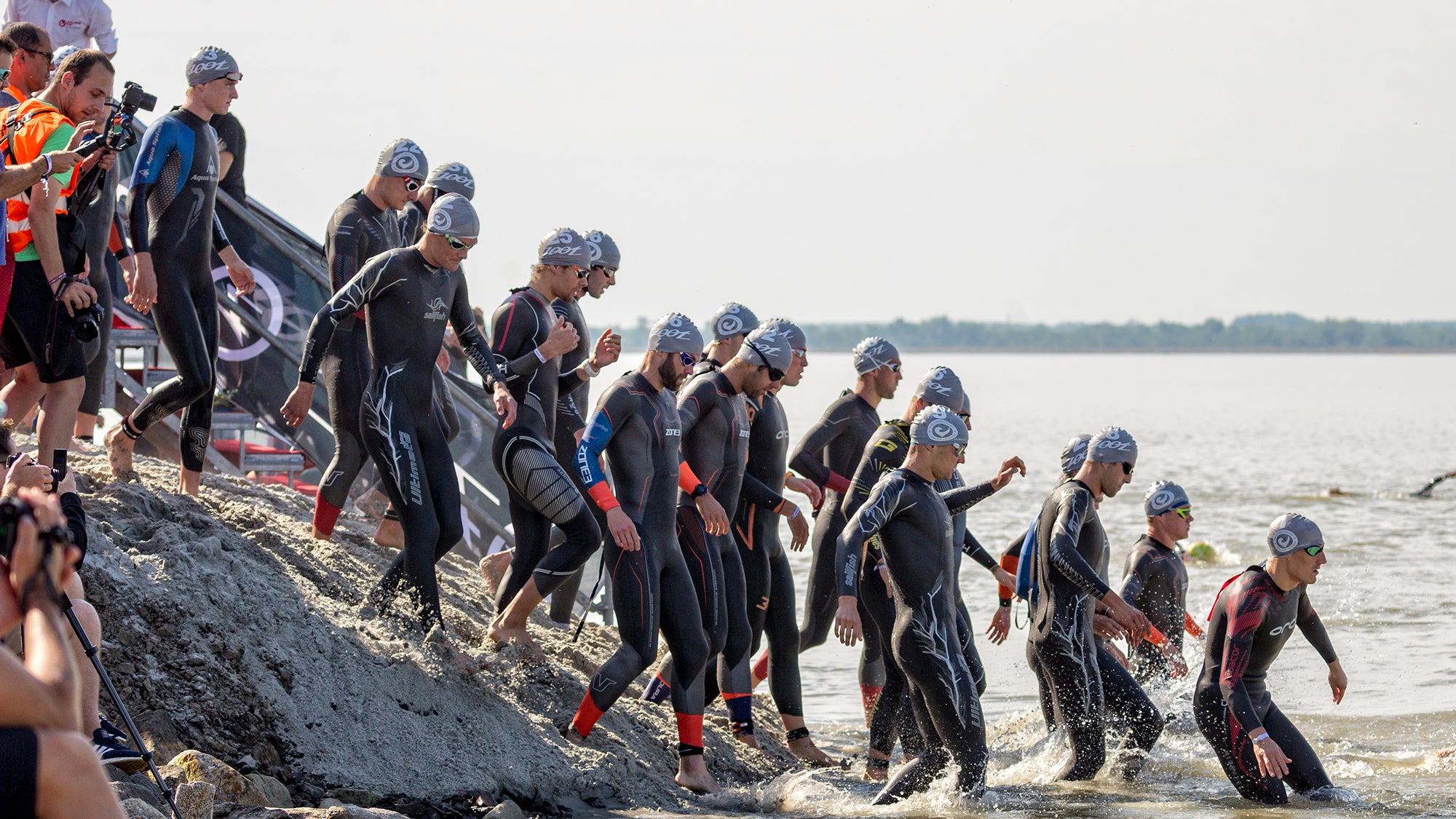PTO Pays Out $2.5 Million to Help Pros Struggling Financially With Race Cancelations

Photo: José Luis Hourcade
With races around the world being canceled and postponed indefinitely (or until the fall), many pro triathletes have found themselves without pay checks for the foreseeable future. To that end, the Pro Triathletes Organization announced yesterday it would pay out $2.5 million in bonuses to the top 100 female and 100 male pros, per the PTO’s world rankings. And it will pay out immediately.
“As people became members we received their bank details, and have them for over 100 athletes and can process them very quickly by wire transfer. And we will be getting other members bank details ASAP,” said Jane Hansom, spokesperson for the PTO.
The organization had previously announced it would pay a $2 million bonus program at the end of the year based on those rankings. This money will be in lieu of that—though following a similar pay out structure. i.e. the very top athletes (Jan and Daniela) will receive $100,000 each and the 20th ranked athletes will get $10,000 each; the additional bump in bonus funding is being used to increase the amounts paid to those ranked lower than 20th — men and women ranked 21st-50th will now receive $8,000 and those ranked 51st-100th will get $5,000 to help tide them over.
Athletes will be paid based on either their ranking on Jan. 1 or their most recent March 15 ranking — whichever is higher. Meaning the PTO could actually be on the hook for slightly more than $2.5 million if everyone comes collecting at their highest spot in time. (You can see the most recent PTO world rankings.)
Additionally, the press release noted that both the top 10 ranked men and top 10 ranked women would make appearances and do events, and distribute any revenue earned to those ranked 20th-100th — essentially earning money for others.
Ben Hoffman, who is currently ranked 6th, confirmed this plan and that they all agreed to appearances or promotional events.
“We are an organization of pros looking to better our sport, and to lift each other up in these hard times. Many pros barely scrape by, and this is one way we can all help keep the energy high and viability alive for many of the professionals out there.”
What that will entail isn’t clear yet, with many restrictions still in place on gatherings and some athletes in lockdown, depending on where they live. But Hoffman said it could include things like Zwift rides, online video Q&As, or something else they’ll think of with all the free time many now have. “It’s likely we all have a little more time to get creative and see what we can do,” he said.
Hoffman said he’s currently fortunate to have enough in savings to get by and to be supported by sponsors. But many pros, Hansom pointed out, have very little in savings and rely on sponsorship deals that are race performance based — meaning they’re losing prize money and sponsor money right now, with a prospect of additional sponsor money drying up as the economy struggles.
“Individuals tend to forget that most triathletes have an operating expense in the negative most of the year. This means that you have to pay upfront for race registration fees, airline tickets, hotels, rental cars, equipment, etc.,” said Meredith Kessler, who is currently ranked 29th and was hoping to race Ironman St. George in May — still TBD on if that race will happen. “This is before you have even made a dime racing. If you are fortunate enough to have made money during a race, you then need to wait another two to three months to get paid.”
“So, yes, $8,000 is a huge deal to have this now to alleviate some of the financial hardships we have and will endure. This is unprecedented in our sport,” she added.
Pro Matt Russell echoed Kessler’s sentiments, especially as the money will help fly himself and his family out of South Africa (where he was preparing to race Ironman South Africa) and back to the US. He said: “The extra money from the PTO (for which we are extremely grateful!) will help get us back to the USA. Racing in the future is a big unknown and we need to keep reminding ourselves that we are just trying to reduce the curve of people getting affected with COVID-19. The whole economy will be affected and it’s certainly scary what the future may be, but all we can do is take one day at a time.”
The challenge is many race organizers are also taking a hit right now because they rely on entry fees and often have to front their operating costs too.
“The PTO is fortunate to be in a position to be able to provide some support to our athletes,” said PTO co-president Rachel Joyce in the press release.
However, the organization, which was finally launched in January with a large capital investment, also announced it would have to cancel its flagship inaugural event, the Collins Cup, scheduled for May and postpone until 2021.
It’s too early, said Hansom, to say whether they will have other events later in the year or how the organization will proceed now with its plans to create PGA-style athlete-owned profitable events. But she did say the PTO is financially stable—even after spending this $2.5 million and delaying the Collins Cup again.